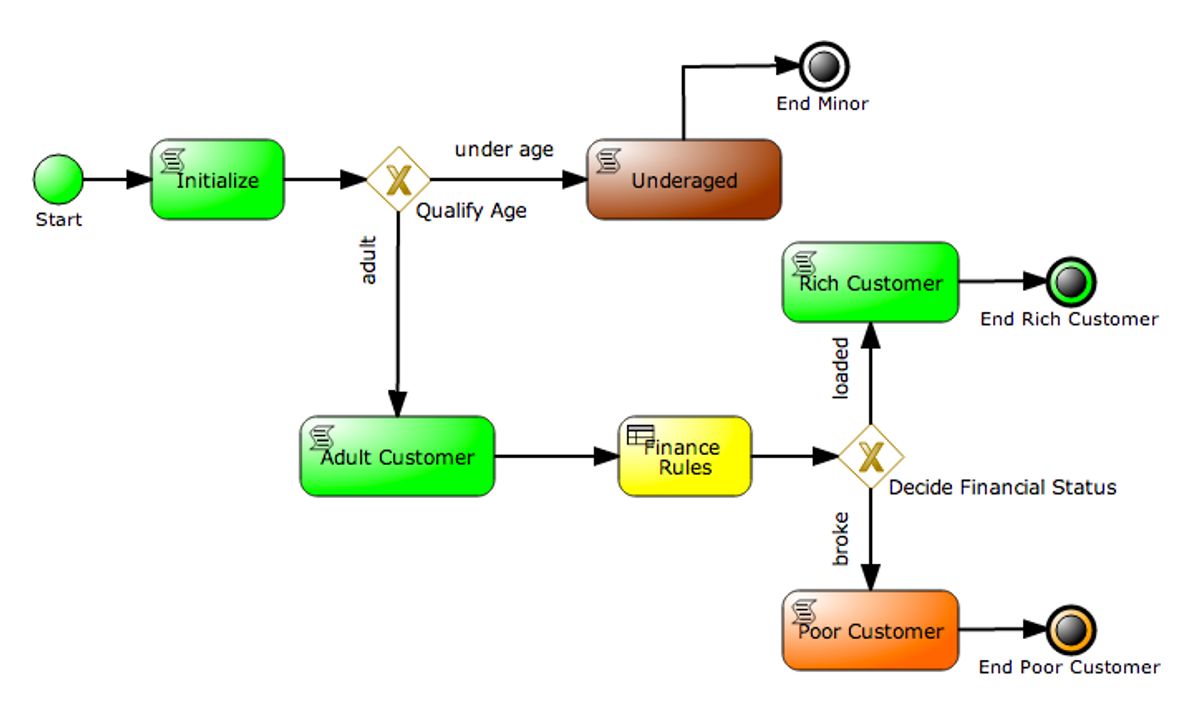In the age where customer expectations are at an all-time high, leveraging Artificial Intelligence (AI) in customer support automation has become a game-changer. AI-driven solutions not only enhance the customer experience through personalization but also streamline support operations, enabling businesses to deliver service that is both efficient and proactive. This article delves into how AI-powered support automation can maximize customer satisfaction, backed by research and practical applications in CRM systems like Salesforce Einstein.
Key Takeaways
- AI-driven personalization significantly increases customer satisfaction by predicting preferences and behaviors, leading to tailored content and support.
- Chatbots and virtual assistants powered by AI offer round-the-clock support, handling routine inquiries and allowing human agents to focus on more complex issues.
- Proactive AI outreach, including predictive support and personalized reminders, fosters trust and enhances the overall customer experience.
- AI-enhanced CRM tools, such as Salesforce Einstein, optimize sales and support by automating lead scoring, case routing, and scheduling, improving operational efficiency.
- Incorporating AI into CRM strategies not only reduces manual tasks by up to 30% but also paves the way for more strategic, high-value customer interactions.
Enhancing Customer Experience with AI-Driven Personalization

Predicting Customer Preferences with AI
In the realm of customer satisfaction, predicting customer preferences is a game-changer. AI-powered tools are now capable of analyzing vast amounts of data, including purchase history and individual behavior, to forecast future needs and preferences. This not only enhances the customer experience by providing personalized recommendations but also boosts engagement and sales.
By leveraging AI marketing tools, businesses can transform the way they interact with customers, offering a more tailored and proactive service.
The integration of AI into CRM systems like Salesforce Einstein has revolutionized predictive analytics. Companies can now anticipate customer needs and identify potential issues before they arise, ensuring a proactive approach to customer service. Here are some of the benefits:
- Personalized customer interactions
- Dynamic content and recommendations
- Proactive outreach and communication
Research indicates a significant increase in customer satisfaction for companies that utilize AI for customer insights. With AI, businesses are not just reacting to customer behaviors but are staying a step ahead, cultivating loyalty and trust.
Identifying and Retaining At-Risk Customers
In the age of digital transformation, AI is redefining customer segmentation and retention strategies. By leveraging AI-powered churn prediction, businesses can pinpoint customers who are likely to disengage or leave. This proactive approach allows for the implementation of targeted retention strategies, ensuring that efforts are concentrated where they are most needed.
- Predict customer needs and preferences to offer personalized recommendations.
- Identify at-risk customers using predictive analytics to prevent churn.
- Analyze customer sentiment to address issues and enhance satisfaction.
With the right AI tools, companies can transform their customer retention efforts, making them more efficient and effective. Research indicates that utilizing AI for customer insights can lead to a significant increase in customer satisfaction.
The integration of AI into CRM systems has proven to be a game-changer. It not only helps in identifying at-risk customers but also provides insights into how to retain them through personalized engagement and support.
Understanding Customer Sentiments Through AI Analysis
Harnessing the power of AI to understand customer sentiments is a game-changer for businesses aiming to enhance their customer service. AI analysis of customer feedback and conversations reveals underlying emotions and attitudes, providing invaluable insights into how customers perceive your brand. This understanding allows companies to address concerns proactively and refine their customer satisfaction strategies.
By analyzing vast datasets, AI identifies patterns and trends in customer behavior, enabling a more nuanced approach to customer service. Personalized interactions become possible, with AI suggesting content and offers that resonate with individual preferences.
The impact of AI on customer sentiment analysis can be summarized in the following points:
- AI algorithms predict customer needs and preferences, allowing for personalized recommendations.
- Dynamic content and recommendations are tailored to individual behavior.
- Proactive outreach based on AI predictions exceeds customer expectations and builds trust.
Research by McKinsey & Company underscores the effectiveness of AI in this realm, noting a 20% increase in customer satisfaction for companies that leverage AI for customer insights. The strategic use of AI in understanding and responding to customer sentiments is not just about keeping pace—it's about setting the standard for exceptional customer service.
Streamlining Support with AI Chatbots and Virtual Assistants

24/7 Customer Inquiry Handling
In the age of instant gratification, customers expect round-the-clock support. AI chatbots and virtual assistants are revolutionizing this aspect by providing immediate responses to inquiries at any time of day. This ensures a seamless support experience, enhancing customer satisfaction and loyalty.
- Understand sentiment and emotions: AI tools analyze feedback to gauge customer feelings, addressing issues proactively.
- Automating repetitive tasks: Chatbots handle routine questions and transactions, freeing up human agents for more complex tasks.
- Dynamic content and recommendations: AI offers personalized assistance based on customer behavior.
By leveraging AI for 24/7 customer inquiry handling, businesses can maintain a constant connection with their customers, fostering a sense of reliability and trust.
The integration of AI into customer support not only meets the demand for immediacy but also provides a platform for continuous learning and improvement. As AI systems interact with customers, they gather valuable data that can be used to refine their algorithms and enhance the overall customer experience.
Empowering Chatbots with Historical Data
By training chatbots with historical data, businesses can significantly enhance the efficiency and accuracy of their customer support. Chatbots become capable of handling routine inquiries and transactions autonomously, reducing the workload on human agents and ensuring that customers receive prompt responses, even during peak times or off-hours.
- Historical data enables chatbots to understand common customer issues and provide quick solutions.
- FAQs and previous support interactions serve as a knowledge base for chatbots to draw from.
- Over time, chatbots learn from new interactions, continuously improving their performance.
Empowering chatbots with historical data not only streamlines support but also contributes to a more personalized customer experience. As chatbots become more adept at interpreting customer needs, they can offer tailored assistance that aligns with individual preferences and past behavior.
Elevating Complex Issue Resolution
AI chatbots and virtual assistants are evolving to handle not just simple queries but also more complex customer issues. By integrating advanced algorithms and machine learning, these tools can now understand the context and nuances of customer problems, providing more accurate and helpful responses. This capability is crucial for maintaining high customer satisfaction and trust.
- Understand sentiment and emotions: Analyze customer feedback to gauge feelings towards your brand.
- Lead scoring and qualification: Prioritize promising leads for your sales team.
- Case routing and resolution: Ensure faster resolution by routing support tickets to the most qualified agent.
- Scheduling and appointment reminders: Send personalized reminders to reduce no-shows.
AI's ability to learn from historical data and FAQs empowers chatbots to handle routine questions and schedule appointments, freeing up human agents to focus on more complex customer interactions.
As AI continues to advance, businesses are finding new ways to leverage these technologies to enhance customer service. From automated workflows to predictive analytics, the potential for AI to transform customer support is immense.
Proactive AI Outreach for Superior Customer Service

Predictive Support for Anticipating Needs
In the realm of customer service, the adage 'prevention is better than cure' takes on a new meaning with AI-powered predictive support. By analyzing customer data and behavior patterns, AI can forecast potential issues and needs, enabling businesses to offer solutions before customers even realize they need them. This proactive approach not only enhances customer satisfaction but also streamlines support operations.
- Predict customer needs and preferences: AI algorithms can anticipate what products or services a customer might be interested in, allowing for personalized recommendations and promotions.
- Identify at-risk customers: Leverage AI-powered churn prediction to identify customers likely to leave and proactively target them with retention strategies.
The integration of predictive analytics in customer relationship management (CRM) systems like Salesforce Einstein allows for a seamless anticipation of customer needs. This strategic foresight is crucial in maintaining a competitive edge and nurturing long-term customer loyalty.
Timely Communication to Build Trust
In the age of instant gratification, customers expect not just quick responses, but also proactive communication. Timely communication from businesses can significantly enhance trust and foster long-term loyalty. By leveraging AI, companies can predict when customers might need assistance and reach out in advance, preventing issues before they arise.
- Predictive analytics enable businesses to anticipate customer needs.
- Automated messages can be personalized and sent at the optimal time.
- Follow-ups ensure customers feel valued and their concerns are not forgotten.
With AI's predictive capabilities, businesses can transform customer interactions from reactive to proactive, ensuring that every touchpoint strengthens the relationship.
Moreover, AI-driven communication tools can analyze customer data to determine the best times for engagement, leading to more meaningful interactions. This strategic approach not only boosts customer satisfaction but also contributes to higher retention and loyalty.
Personalized Reminders to Improve Customer Experience
In the realm of customer service, personalized reminders serve as a pivotal touchpoint that can significantly enhance the customer experience. By leveraging AI, businesses can send timely and relevant notifications to customers, ensuring they stay informed and engaged. This proactive approach not only fosters a sense of care and attention but also helps in maintaining a seamless customer journey.
AI-driven reminders are not just about alerting customers; they're about delivering value at the right moment. Whether it's a nudge for a service renewal, a prompt for an abandoned cart, or a gentle reminder for an upcoming appointment, each interaction is an opportunity to demonstrate understanding and attentiveness to individual customer needs.
The benefits of personalized reminders are manifold:
- They keep customers informed about important dates and actions, reducing the likelihood of missed opportunities or service lapses.
- Personalized reminders can drive customer engagement, encouraging repeat business and fostering loyalty.
- By anticipating customer needs, businesses can deliver a more cohesive and satisfying service experience.
Incorporating AI into your reminder system allows for a nuanced understanding of customer habits and preferences, which can be used to tailor communications effectively. The result is a more intuitive and responsive service that resonates with customers on a personal level.
Optimizing Sales and Support with AI-Enhanced CRM

AI-Powered Lead Scoring and Qualification
In the realm of customer relationship management, AI-powered lead scoring and qualification stand out as game-changers. By leveraging sophisticated algorithms, AI meticulously sifts through leads to identify and prioritize the most promising ones. This not only enhances the efficiency of the sales process but also ensures that the sales team can focus their efforts where it matters most.
The integration of AI into lead scoring transforms the landscape of sales prioritization, enabling a more strategic allocation of resources.
The benefits of AI in this domain are manifold. For instance, Salesforce Einstein automates data entry and initial customer inquiries, which Gartner research suggests could reduce manual tasks in sales by up to 30% by 2024. Here's how AI redefines lead management:
- Prioritization of leads: AI evaluates numerous data points to score leads, highlighting those with the highest potential for conversion.
- Enhanced targeting: By predicting customer needs and preferences, AI allows for more personalized and effective sales approaches.
- Resource optimization: Automating routine tasks frees up time for sales teams to engage in more strategic, high-value activities.
Efficient Case Routing for Faster Resolution
In the realm of customer support, AI-enhanced CRM systems are revolutionizing the way inquiries are handled. By intelligently analyzing incoming support tickets, these systems can automatically route them to the most qualified agent. This not only ensures a quicker response time but also a higher likelihood of first-contact resolution, a critical factor in customer satisfaction.
- Prioritization of tickets based on urgency and complexity
- Matching of cases to agents with the right expertise
- Reduction in response times and improvement in resolution rates
The integration of AI into CRM for case routing is a game-changer, enabling support teams to operate with unprecedented efficiency.
With the use of AI, companies are seeing a marked improvement in handling customer support requests. For instance, the Yuma AI Ticket Assistant, highlighted as the best customer service AI tool for managing high volumes, exemplifies the potential of such systems to streamline operations and enhance customer experiences.
Automated Scheduling for Streamlined Operations
The integration of AI into scheduling operations marks a significant leap towards operational efficiency. Automated scheduling systems are not just about filling calendars; they're about optimizing time management across the board. By leveraging AI, businesses can ensure that appointments are set at optimal times, considering factors such as availability, customer preferences, and resource allocation.
The beauty of AI-driven scheduling lies in its ability to adapt and learn from patterns of appointments and rescheduling, continuously improving the process.
Here's how AI-powered scheduling can transform your operations:
- Reduction in no-shows: Automated reminders and confirmations keep appointments on track.
- Resource optimization: AI allocates resources effectively, avoiding overbooking and underutilization.
- Enhanced customer experience: Customers enjoy the convenience of self-service scheduling and timely reminders.
Embracing AI for scheduling not only streamlines operations but also contributes to a more personalized customer journey. As AI systems become more sophisticated, they pave the way for a future where operational efficiency and customer satisfaction are deeply intertwined.
Conclusion
In the rapidly evolving landscape of customer service, AI-powered support automation stands as a beacon of innovation, driving satisfaction to new heights. By harnessing the capabilities of AI, businesses can offer dynamic, personalized interactions that resonate with individual customer needs, while simultaneously streamlining operations to enhance efficiency. The integration of AI into CRM, exemplified by platforms like Salesforce Einstein, has shown a marked increase in customer satisfaction and operational productivity. As we've explored, from chatbots handling routine inquiries to predictive analytics shaping customer journeys, the potential of AI in CRM is vast and multifaceted. Embracing AI-powered support automation is not just a strategic move—it's a transformative one that can redefine the customer experience and set a new standard for excellence in customer service.
Frequently Asked Questions
How does AI-driven personalization enhance customer satisfaction?
AI-driven personalization enhances customer satisfaction by analyzing customer behavior and preferences to suggest relevant content, articles, and offers, ensuring interactions and offers are tailored to each customer's unique needs.
What role do AI chatbots play in customer support?
AI chatbots handle basic inquiries 24/7, providing instant contact and freeing up agents for more complex issues. They can be trained with historical data and FAQs to answer routine questions, handle transactions, and schedule appointments.
In what ways can AI-powered CRM contribute to customer service?
AI-powered CRM contributes to customer service by automating lead scoring and qualification, efficiently routing cases for faster resolution, and sending personalized reminders, which improves the customer experience and reduces no-shows.
What is the impact of AI on sales and customer service teams?
AI automates routine tasks, allowing sales and customer service teams to focus on strategic activities. This leads to increased efficiency and a predicted reduction of manual tasks in sales by up to 30% by 2024.
How does Salesforce Einstein revolutionize CRM with AI?
Salesforce Einstein uses AI to automate data entry, lead scoring, and customer inquiries, providing insights into customer behavior and preferences for personalized service, thereby transforming CRM and increasing business efficiency.
Can AI help in identifying and retaining at-risk customers?
Yes, AI can leverage churn prediction algorithms to identify customers likely to leave and enable proactive targeting with retention strategies, thus helping in retaining at-risk customers.



